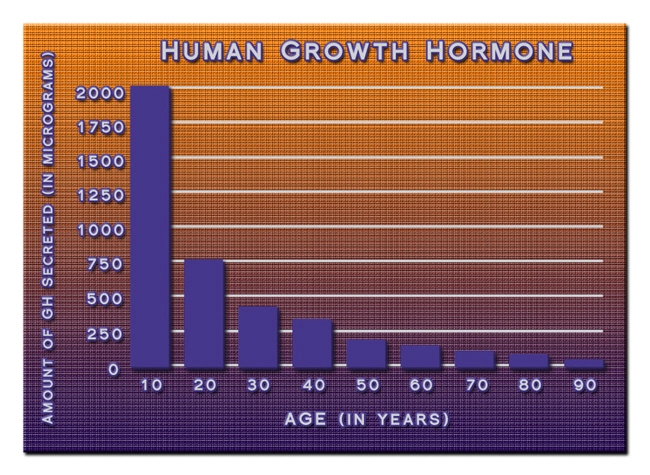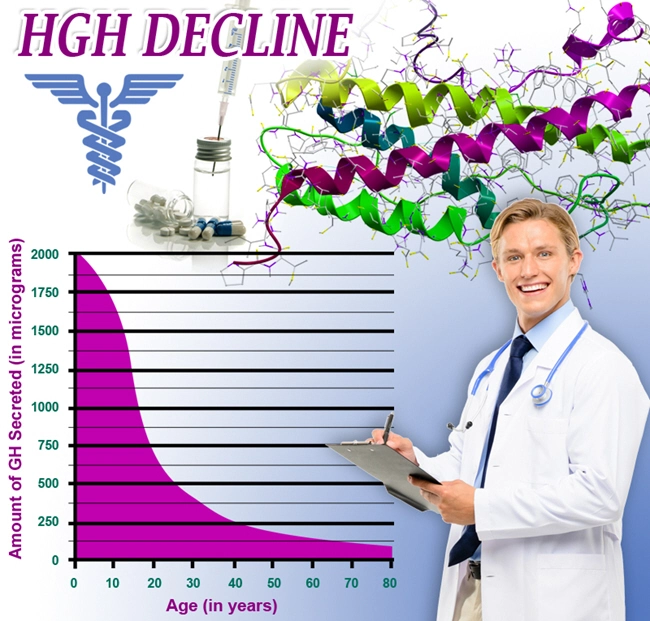
Video Link: https://vimeo.com/252591378
Video Download: Click Here To Download Video
Video Stream: Click Here To Stream Video
Red Meat:
Good or bad?
Healthy or unhealthy?
A-1 protein source? Or a precursor to a heart attack?
Keep reading and make an informed decision.
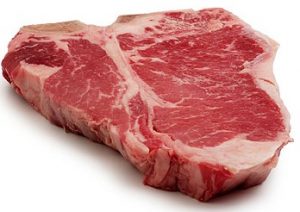 The puzzle of health, longevity, and aging has many components. One of the primary components of this puzzle is the loss of hormones as we age which brings debilitating consequences. Our clinics have several hormone replacement regimens to counter this loss; Human Growth Hormone (HGH) Replacement Therapy, Testosterone Replacement Therapy (TRT), and Sermorelin Therapy. All of these hormone treatment regimens deliver results.
The puzzle of health, longevity, and aging has many components. One of the primary components of this puzzle is the loss of hormones as we age which brings debilitating consequences. Our clinics have several hormone replacement regimens to counter this loss; Human Growth Hormone (HGH) Replacement Therapy, Testosterone Replacement Therapy (TRT), and Sermorelin Therapy. All of these hormone treatment regimens deliver results.
But to ensure that our clients receive the maximum benefits from our treatment therapies we also stress the crucial importance of nutrition, including what to eat and what not to eat. And that includes the questions surrounding red meat.
To eat red meat, or not to eat red meat? That is the question, and it’s time to find the answer. On the one hand, many nutritionists and medical professionals warn that the consumption of red meat should be either minimized or eliminated from a healthy diet.
The anti-red meat arguments range from health reasons to the detrimental effects of meat processing and consumption on the environment and ethical concerns. Vegetarians can be extremely passionate about their cause and choice of nutritional lifestyle.
On the other hand, many people continue to enjoy consuming red meat and feel no guilt about doing so. Their feelings run the spectrum from the necessity of meat in a healthy diet to enjoyment of the taste of red meat, and the fact that the human race evolved eating meat, and giving it up would fly in the face of millions of years of evolution.
So who is right? Is eating red meat both unhealthy and immoral? Or is red meat the vital source of protein, healthy fats, and minerals that many professional bodybuilders and weightlifters have long proclaimed?
To help answer those questions, here is a detailed look at all of the arguments on the topic of red meat, both pro and con.
Why You Shouldn’t Eat Red Meat
Red meat may cause your blood vessels to harden. According to a study published in the journal Nature Medicine, carnitine, a significant component of red meat, may play a role in clogged blood vessels.
Decreased Lifespan. The Harvard School of Public Health proclaims that regular red meat consumption increases the risk of cancer (especially colorectal cancer), cardiovascular disease, and stroke. This, they claim, is due to specific carcinogens that form during cooking, as well as some ingredients in red meat and the added intake of saturated fat and raised cholesterol levels.
Increased diabetes risk. A 2011 Harvard School of Public Health study concluded that daily consumption of processed red meat leads to a 19% higher risk
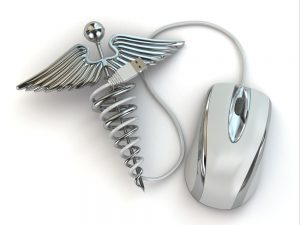 of developing diabetes. The researchers theorized that the cause might be the additional amount of sodium and preservatives in processed red meat. Interestingly, they did not arrive at the same conclusion for unprocessed red meat, stating that those types of meats should be studied separately in future research to determine if the same risk factors applied.
of developing diabetes. The researchers theorized that the cause might be the additional amount of sodium and preservatives in processed red meat. Interestingly, they did not arrive at the same conclusion for unprocessed red meat, stating that those types of meats should be studied separately in future research to determine if the same risk factors applied.Transglutaminase. This hard to pronounce enzyme (trans·glu·ta·min·ase) is also called “meat glue.” Just the phrase “meat glue” sounds insidious enough to make many stomachs queasy. In the never-ending quest for profits at all costs, the big meat manufacturers and processors stick small bits of meat into larger chunks that are held together by this glue. Critics feel that this is both unethical (since this is concealed from consumers) and dangerous since this process is thought to raise the bacterial contamination of meat.
Red meat consumption = weight gain. Vegetarians insist that eating red meat is a handy way of blowing up your belly like a balloon. They also claim that meat-eaters are an astonishing nine times more likely to suffer from obesity than vegans.
The unknown ingredients present in red meat. Toxins, hormones, dioxins, fecal matter, antibiotics and who-knows-what-else are all additional reasons to avoid meat, according to vegans.
Environmental concerns. Greenhouse gas emissions, the increased pollution around livestock slaughterhouses, the waste of energy, bacteria, and viruses produced in the livestock factories that enter into our drinking water due to run-off, and add to climate change are all arguments used by anti-meat groups. Some studies have demonstrated a link between miscarriages and neurological illnesses for people living near animal factory farms.
Cruelty to animals. The process of preparing cattle to leave the grazing yards and end up in our supermarkets is not pretty: castration, mutilation, dehorning, branding, and throat-slitting are not pleasant thoughts -- and are seldom considered by the final consumers of red meat. Those who subscribe to this line of well-worth insist that compassionate, moral people do not eat meat.
Additional health risks. Vegans insist that both the workers in the meat industry and the consumers of meat face many undisclosed, adverse consequences: respiratory illnesses, foodborne pathogens, disease from manure and fertilizer-polluted water, cardiovascular disease, diabetes, cancer, gallstones, and obesity are all afflictions that are increased as a direct result of meat-eating.
Hormones. Consider this: in their strenuous efforts to produce larger animals grown quicker, cattle are pumped full of anabolic steroids and
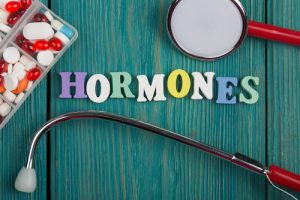 antibiotics. Some researchers have drawn a link between the gross overuse of antibiotics and the emergence of so-called “superbugs” that are invading hospitals at an ever-increasing and alarming rate. In fact, many of these hormones are banned in several nations. Perhaps there is truth to the saying that “you are not just what you eat; you are also what your animals eat.”
antibiotics. Some researchers have drawn a link between the gross overuse of antibiotics and the emergence of so-called “superbugs” that are invading hospitals at an ever-increasing and alarming rate. In fact, many of these hormones are banned in several nations. Perhaps there is truth to the saying that “you are not just what you eat; you are also what your animals eat.”
Much to contemplate from that side of the equation. However, there are two sides to every story, and now let’s take a look at the arguments for the eating of red meat:
The dense nutritional content of red meat. The American Diabetic Association points out that red meat is the single most fruitful source of iron and zinc and adds massive amounts of vitamins and minerals to our diets, especially b-6, b-12, vitamins A and D and, calcium. This combination delivers a wall of protection against the common cold by strengthening your immune system. Beefnutrition.org adds that beef contributes less than 10 per cent of saturated fat and total fat in the diet. Also, red meat is jammed-packed with carnosine, which protects the brain against aging.
Meat may not be carcinogenic. On the link between red meat consumption and cancer, the jury is still out. Many of the studies that linked red meat to increased cancer risks increased with processed meats, not “whole muscle meats” like steak.
People enjoy the taste of meat. This is self-explanatory. If some folks enjoy the taste of meat, then they’re going to eat it, period.
Enhancement of male fertility. Selenium plays a considerable role in conception since it is needed to develop healthy ovarian follicles. Men who eat low amounts of meat, nuts, and whole grains (i.e., selenium-deficient diets) tend to have low sperm counts. By adding more selenium to their foods by eating more red meat, men increase their sperm count and boost the ability of their sperm to swim, thus helping their efforts to conceive.
Build muscle. This is important to all men who are striving hard to increase their strength and muscle mass. Red meat is loaded with creatine, a naturally occurring amino acid that floods your cells with energy and promotes lean muscle mass by enhancing muscle cell volume and improving protein synthesis.
 Red meat is also an outstanding protein source, which translates into fuel for muscle growth. If all this weren’t enough to make a case for weight-lifters to eat red meat, here is one more favorable benefit to consider: red meat is a source for L-carnitine, a substance that promotes increased muscle mass and turns fat into an efficient fuel source to power you through grueling workout sessions. Finally, there are testimonials of generations of strong men as to the beneficial role of red meat in developing their strength and muscles.
Red meat is also an outstanding protein source, which translates into fuel for muscle growth. If all this weren’t enough to make a case for weight-lifters to eat red meat, here is one more favorable benefit to consider: red meat is a source for L-carnitine, a substance that promotes increased muscle mass and turns fat into an efficient fuel source to power you through grueling workout sessions. Finally, there are testimonials of generations of strong men as to the beneficial role of red meat in developing their strength and muscles.Human evolution. Several evolutionary biologists have concluded that the copious amounts of red meat consumed by our caveman ancestors contributed to their increased brain size when compared to other plant-eating primates. Another argument for meat-eating is that it is not natural for humans to survive on a plant-based diet.
The reports of animal suffering and cruelty in feeding farms are not always accurate or greatly exaggerated. Meat-eating advocates insist that the animals lead a happy, healthy life, receive professional veterinary care, are well-fed, and are slaughtered humanely. Therefore, the ethical grounds against eating meat ring hollow.
Is There a Middle Ground?
So you’ve heard both sides of the meat-eating debate. Is there a middle ground? For many, no. Some people feel so passionately about the topic that it is a black-and-white issue: no meat-eating, or eat as much meat as you like.
For others, there is a middle ground. An argument in support of moderate red meat consumption is this. As mentioned earlier, humans evolved eating red meat. But we didn’t eat meat continually. Often, the men in the hunting parties of prehistoric times came back with a huge animal in tow, and the tribe would gorge themselves on meat for weeks.
Yet, just as often, in spite of their considerable hunting skills, the men would return empty-handed, and the tribe would subsist on the roots, fruits, and vegetables that the women had gathered.
The lesson? Eating meat is not intrinsically harmful. But it is not necessary to eat meat regularly. Going meatless for extended periods of time has been the norm for thousands, if not millions of years. But there is no logical reason to be fanatical and forgo meat entirely.
But Not Just Any Kind of Meat
 The meat that our caveman ancestors ate is not what is commonly available at our neighborhood grocery stores. Go back and re-read the arguments in the “why you shouldn’t eat red meat” bullet points. Many of them are right on the money, and should not be dismissed.
The meat that our caveman ancestors ate is not what is commonly available at our neighborhood grocery stores. Go back and re-read the arguments in the “why you shouldn’t eat red meat” bullet points. Many of them are right on the money, and should not be dismissed.
If you still feel that meat is a valuable and necessary ingredient to your diet, please keep these points in mind:
Always choose organic, grass-fed beef over grain-fed beef. Grass-fed beef has several times more heart-healthy omega-3 fats, fewer harmful omega-6 fats, and fewer calories and cholesterol. Also, grass-fed beef packs two-to-three times the amount of Conjugated Linoleic Acid (CLA). Studies have concluded that CLA might deliver protection against heart disease, diabetes, and cancer. Also, organic beef is free of steroid hormones and antibiotics. Since approximately 97% of the meat produced in America is grain-fed, this will take a bit of effort to find grass-fed beef. But the extra effort is well worth the inconvenience.
Minimize the consumption of processed meats. Processed meats like hot dogs, sausage, and lunch meats are loaded with preservatives and additives like
 sodium nitrate, which has been linked to cancer.
sodium nitrate, which has been linked to cancer.Pay attention to how you cook meat. Frying, searing, grilling, and broiling can cause problems. These methods are known to produce a carcinogenic substance called heterocyclic amines, which may increase your cancer risk.
So there you have it: both sides of the story. It’s up to you to make up your mind, and hopefully, the facts delivered here will help you make an informed decision.
Contact us for a FREE, no-obligation discussion on the benefits of hormone replacement and many other aspects of longevity, and anti-aging.
References
Red meat: Good or bad for health?
Contact Us Today For A Free Consultation
Dear Patient,
Once you have completing the above contact form, for security purposes and confirmation, please confirm your information by calling us.
Please call now: 1-800-380-5339.
Welcoming You To Our Clinic, Professor Tom Henderson.

- Obese Patients Have a Higher COVID-19 Mortality Risk Than the General Public [Last Updated On: January 24th, 2025] [Originally Added On: August 21st, 2020]
- The Health and Hormone Balancing Qualities of Broccoli [Last Updated On: July 10th, 2024] [Originally Added On: August 27th, 2020]
- What to eat to boost testosterone [Last Updated On: August 13th, 2024] [Originally Added On: December 14th, 2020]
- Breaking a Weight Loss Plateau: How to Reduce Body Fat When Nothing Seems to be Working [Last Updated On: January 20th, 2025] [Originally Added On: February 16th, 2021]
- The Top 25 Most Nourishing and Sustaining Foods to Add to Your Diet Today for Increased Longevity [Last Updated On: January 16th, 2025] [Originally Added On: February 16th, 2021]
- Fight Inflammation and Osteoporosis with Beets! [Last Updated On: January 14th, 2025] [Originally Added On: February 18th, 2021]
- Break a Weight Loss Plateau with Apple Cider Vinegar [Last Updated On: January 14th, 2025] [Originally Added On: February 20th, 2021]
- An Intriguing Look into How Growth Hormone Production and Fasting are Linked [Last Updated On: January 18th, 2025] [Originally Added On: February 21st, 2021]
- Health Reasons for a Vegan Diet [Last Updated On: September 24th, 2024] [Originally Added On: April 2nd, 2021]
- Leafy Greens are Medicine for Your Gut [Last Updated On: August 27th, 2024] [Originally Added On: April 23rd, 2021]
- All Praise to the Spud -- the Delicious, Health-Giving Potato, That Is [Last Updated On: July 11th, 2024] [Originally Added On: June 1st, 2021]
- 16 Cancer-Causing Foods to Avoid [Last Updated On: June 12th, 2024] [Originally Added On: August 12th, 2021]
- Longevity and Anti-Aging -- The Use of Flax Seed Oil [Last Updated On: May 30th, 2024] [Originally Added On: August 17th, 2021]
- Essential Amino Acids Critical to Health and Hormone Balance [Last Updated On: July 5th, 2024] [Originally Added On: October 6th, 2021]
- Growth Hormone and Calcium [Last Updated On: January 11th, 2025] [Originally Added On: October 16th, 2021]
- Growth Hormone and Coffee [Last Updated On: January 9th, 2025] [Originally Added On: October 19th, 2021]
- The Importance of Protein in Weight Loss and Testosterone Production [Last Updated On: January 19th, 2025] [Originally Added On: October 19th, 2021]
- Testosterone, Growth Hormone, and Sugar. [Last Updated On: January 9th, 2025] [Originally Added On: October 19th, 2021]
- Testosterone, Growth Hormone, and Processed Meat [Last Updated On: January 8th, 2025] [Originally Added On: October 19th, 2021]
- Growth Hormone and Intermittent Fasting [Last Updated On: January 7th, 2025] [Originally Added On: October 19th, 2021]
- Growth Hormone and the Importance of Nutrition [Last Updated On: January 7th, 2025] [Originally Added On: October 20th, 2021]
- Growth Hormone Stops Inflammation! [Last Updated On: January 8th, 2025] [Originally Added On: October 20th, 2021]
- Growth Hormone and Sugar Addiction [Last Updated On: January 4th, 2025] [Originally Added On: October 20th, 2021]
- Boost Growth Hormone with Sleep [Last Updated On: June 11th, 2024] [Originally Added On: October 20th, 2021]
- A Natural Acid Found in Apples Prevents Muscle Loss AKA Sarcopenia [Last Updated On: January 10th, 2025] [Originally Added On: October 20th, 2021]
- Growth Hormone and Organic Foods. [Last Updated On: January 3rd, 2025] [Originally Added On: October 21st, 2021]
- Growth Hormone and Acidosis [Last Updated On: January 5th, 2025] [Originally Added On: October 21st, 2021]
- Growth Hormone Food Choices [Last Updated On: January 2nd, 2025] [Originally Added On: October 21st, 2021]
- Growth Hormone and Cholesterol: the Surprising Link [Last Updated On: January 6th, 2025] [Originally Added On: October 22nd, 2021]
- Growth Hormone and Weight Loss [Last Updated On: January 3rd, 2025] [Originally Added On: October 22nd, 2021]
- Growth Hormone Reduces Inflammation [Last Updated On: January 4th, 2025] [Originally Added On: October 24th, 2021]
- What You Eat Impacts Both Your Sleep AND Your Growth Hormone Production [Last Updated On: January 10th, 2025] [Originally Added On: October 24th, 2021]
- Growth Hormone Lowers Blood Sugar [Last Updated On: January 6th, 2025] [Originally Added On: October 24th, 2021]
- Testosterone and Magnesium [Last Updated On: June 13th, 2024] [Originally Added On: April 28th, 2022]
- The Beneficial Functions of Brown Fat vs. White Fat [Last Updated On: June 17th, 2024] [Originally Added On: May 3rd, 2022]
- MOTS-c Peptide for Weight Loss and Muscle Building [Last Updated On: July 3rd, 2024] [Originally Added On: November 7th, 2022]
- Looking to lose weight? Add this ingredient to meals [Last Updated On: August 24th, 2024] [Originally Added On: December 7th, 2022]
- The many health benefits of black tea [Last Updated On: August 23rd, 2024] [Originally Added On: December 13th, 2022]
- Raw Food Benefits [Last Updated On: August 20th, 2024] [Originally Added On: January 18th, 2023]
- Brain Foods that Work Together with HGH to Improve Mental Sharpness [Last Updated On: February 14th, 2025] [Originally Added On: March 9th, 2024]

